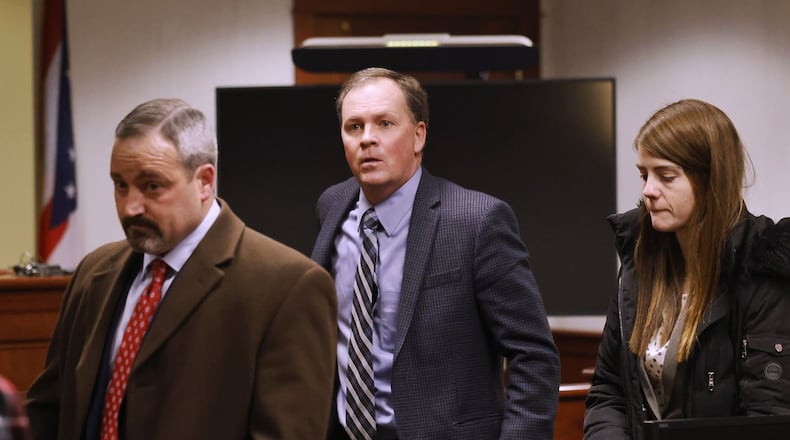Reynolds, 53, faces six to 18 months in prison, with a potential fine of up to $5,000. Because of the felony conviction he is not legally permitted to hold elected office and the county commissioners have named Joe Statzer as interim county auditor. He is scheduled to be sentenced by Visiting Judge Daniel Hogan on Feb. 15.
Special Prosecutor Brad Tammaro said in response to the acquittal motion that the defense made the same argument that there was not enough evidence to convict at trial and it was rejected then by the jury and the court.
The judge denied the defense motion for acquittal during the December trial and should again, Tammaro argued.
On Friday, Visiting Judge Daniel Hogan denied the post conviction acquittal motion, saying, “the court does not weight the evidence, but simply determines whether the evidence, if believed, is adequate to the support of conviction. If any rational trier of fact could find the essential elements, proved beyond a reasonable doubt, the motion must be denied.”
Reynolds’ conviction was related to a proposal he made to the then-treasurer of Lakota Local Schools.
In September 2017, Reynolds’ office returned $2 million to all taxing districts and $459,498 to Lakota. The fees are monies the auditor’s office receives from the state for calculating and distributing real estate taxes from levies to local governments. If the auditor’s office doesn’t need all the fees to operate, they can be returned to the various entities.
Reynolds approached the treasurer of the school district and suggested the district use public money to build an indoor golf training facility at Four Bridges Country Club.
He lives adjacent to the club, and the pro there coaches the Lakota girls golf team, where his daughter played at the time, according to testimony.
Former Lakota treasurer Jennifer Logan testified at trial that Reynolds proposed the “idea” to her during a meeting in December 2016. She and others from the district met with Reynolds at his office on High Street to discuss bond millage. When the meeting ended, he asked the others to leave the room.
Logan, who now works for the Butler County Educational Service Center, said Reynolds proposed $250,000 — or about half of the district’s refund money for the next three years — be used to build a year-round golf academy at Four Bridges for use by the Lakota golf teams.
Logan talked to the district’s lawyers about the idea, and she was told it shouldn’t be pursued for various reasons, including using public money to build on private property.
Reynolds then proposed an option of letting Four Bridges build the facility and charging the district a yearly access fee of $250,000. Both proposals never reached the point of being voted by the school board.
Ziepfel said in the acquittal motion that there is no evidence a contract between the schools and golf club was authorized, because it never made it past the preliminary stages, and there is no evidence that any such contract would have been a “public contract.” He also said there is no evidence Reynolds used the authority or influence of the auditor’s office to secure authorization of any contract.
The law requires proof that influence was used to secure authorization, not that a contract came to fruition, according to Tammaro.
Hogan said in his decision “the record is replete with evidence of defendant’s behavior. Some behavior is subtle. Some not so subtle. The jury was free to use said evidence and inferences drawn there from to determine if the defendant used the authority and influence of his office to secure authorization of proposed contract.”
About the Author

